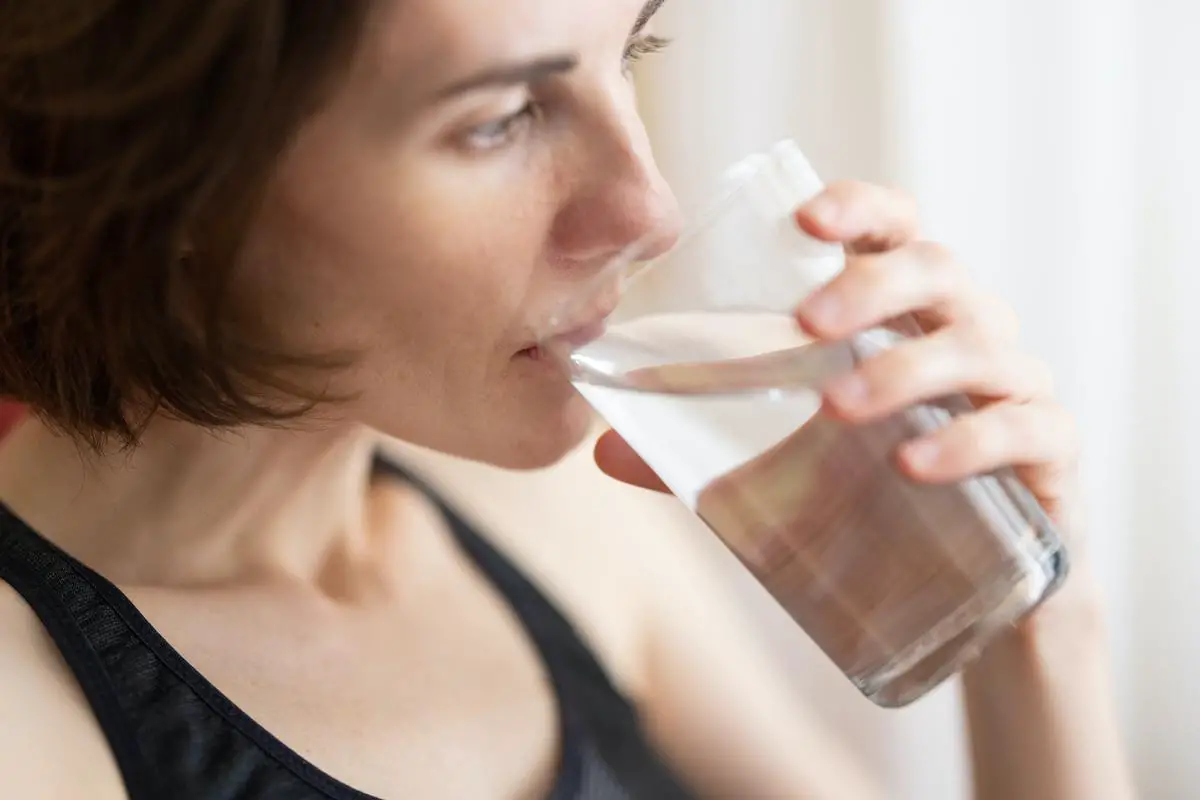Hydration is essential to all aspects of health, but it becomes particularly critical during pregnancy when the body undergoes significant changes and supports the growth of a new life. The importance of water in the maintenance of bodily functions can’t be emphasized enough—the facilitation of digestion, the regulation of body temperature, and the sustenance of amniotic fluid are all dependent on adequate water intake. However, evolving physical factors and increased demands during pregnancy can affect hydration requirements. This article discusses in depth why hydration is paramount during pregnancy, how much water pregnant women should ideally consume daily, how hydration can be increased through certain foods and drinks, and the key safety measures to prevent dehydration.
Importance of Hydration During Pregnancy
Why Hydration is Crucial for Pregnant Women
Keeping adequately hydrated during pregnancy is critical for a multitude of reasons. Regular water intake ensures the body functions optimally, processing waste products and facilitating the correct balance of minerals and electrolytes. It is well-known that dehydration can lead to serious complications during pregnancy such as constipation, hemorrhoids, bladder infections, and even preterm labor. Constipation and hemorrhoids are common during pregnancy due to increased progesterone levels which slow down the digestive system. Regular water intake helps soften stool, reducing the risk of these painful conditions.
Examining the Benefits of Hydration for Mother and Baby
Sufficient water intake, particularly in the later stages of pregnancy, can have remarkable benefits for both mother and baby. The importance of regulating body temperature cannot be overstated, especially during pregnancy when the mother’s body undergoes various hormonal changes.
Water is a natural coolant and plays a key role in the body’s temperature regulation. Pregnant women may experience hot flashes or periods of sweating due to hormonal changes, and staying hydrated can help manage these symptoms. Adequate consumption of water also aids digestion and can alleviate common pregnancy symptoms such as nausea and heartburn.
Swelling, or edema, is another common symptom of pregnancy. It typically occurs in the feet, ankles, legs, and hands. Drinking plenty of water helps the body retain its sodium balance and prevents water retention, effectively lowering inflammation and reducing swelling.
Moreover, maintaining an optimal amniotic fluid level is crucial for the baby’s well-being. This fluid serves several functions, including protecting the fetus from injury, regulating temperature, aiding lung and digestive system development, and providing freedom of movement to the baby for muscular and skeletal development. Hydration is critical for maintaining the amniotic fluid level. According to the American Pregnancy Association, the amniotic fluid is made up of 98% water, emphasizing the need for sufficient water intake during pregnancy.
Understanding Hydration During Pregnancy: Your Water Intake Guide
It’s commonly asked: how much water should a pregnant woman consume? The reality is, there’s no one-size-fits-all answer to this, as it fluctuates depending on factors like activity level, body weight, and existing health conditions. Guidelines from the Institute of Medicine suggest that pregnant women should aim for a daily water intake of approximately 10 cups (2.3 liters). Yet, it’s key to remember that hydration is not provided by water alone. Foods high in water content, like fruits and vegetables, as well as other fluids such as milk and juice, also contribute to your body’s overall hydration.
Keeping well-hydrated during pregnancy is of utmost importance for both the mother and baby. Regular intake of water aids in digestion, reduces swelling, maintains a consistent body temperature, and helps to keep the amniotic fluid levels optimal. This results in a healthier and more comfortable pregnancy journey.

Recommended Water Intake for Pregnant Women
Adjusting Your Water Intake Based On Your Needs
Ensuring you’re adequately hydrated during pregnancy is critical. The Institute of Medicine again advises that pregnant women aim for around 10 cups (2.3 liters) of fluid each day. However, it’s also crucial to remember that this figure can differ based on individual circumstances. So listen to your body and adjust your fluid intake accordingly.
The water you consume plays a significant role in your pregnancy. It not only contributes to the formation of the amniotic fluid but also facilitates the vital process of your baby’s development. Furthermore, hydration aids in the digestion and absorption of nutrients, the elimination of waste products, and the regulation of your body temperature.
Physical Activity and Hydration
The amount of water you need to drink can also be influenced by your level of physical activity. Pregnant women are typically advised to maintain a certain level of physical activity for their health and their baby’s health. Regular exercise helps to reduce the risk of pregnancy complications.
However, physical activity can cause the body to lose fluids through perspiration. Therefore, if you are physically active, you may need to consume additional fluids to stay hydrated. This goes above and beyond your daily water requirement.
Body Mass and Fluid Intake
Your personal body mass also influences how much water you should be drinking daily while pregnant. Women who are overweight or obese typically require more water than those of a normal weight, due to greater body mass and increased metabolic demand. Obese pregnant women, in particular, might have additional fluid demands since they are at higher risk for conditions like gestational diabetes.
Weather and Hydration
The environment you are in can also affect hydration needs. During hot weather or if you live in a warm climate, your body may lose additional water through increased perspiration. Consequently, you may need to increase your fluid intake to stay adequately hydrated. The same goes for winter, where heated indoor air can cause your body to lose more water.
Tips for Pregnant Women to Stay Hydrated
Staying hydrated is a crucial part of pregnancy, and while drinking water is the ideal way to meet your fluid needs, you have other options. Foods rich in fluids like fruits, soups, milk, and vegetables can factor significantly to your daily fluid intake, helping you stay hydrated. However, steer clear of high-sugar beverages since they can result in excessive weight gain.
Track your consumption of caffeinated drinks too. Despite being okay in moderation, these beverages can have a diuretic effect and increase urination, potentially resulting in significant fluid loss. Thus, they should not be your major source of fluid.
Remember to watch out for signs of dehydration like dark-colored urine, dry mouth and lips, and feelings of tiredness or dizziness. If you notice any of these symptoms, consult your healthcare provider right away.

Sources of Water in Food and Drinks
Food-Based Hydration for Pregnant Women
Hydration during pregnancy doesn’t solely rely on drinking water, eating the right foods is equally important. Fruits and vegetables that are high in water content play a significant role in meeting your hydration needs. Take cucumbers, for example, they are composed of about 96% water, thereby being an excellent source of hydration. Watermelons are not too far behind, at 92% water content, also offering important vitamins and minerals. Other fluid-rich fruits and vegetables that you can add in your diet include strawberries, oranges, peaches, lettuce, zucchini, and tomatoes.
Other Beverages for Hydration During Pregnancy
Aside from water and hydrating foods, certain beverages can also supplement your water intake. Milk is not only a good source of hydration, but it also packs a nutritional punch, providing necessary calcium and vitamin D. However, it’s important to remember that some types of milk can be high in fat and calories, so opt for reduced-fat or fat-free versions whenever possible.
Fruit juices can also contribute to hydration, with the added benefits of vitamins and minerals. However, they are often high in sugar and low in fiber, so they should be consumed in moderation. To take advantage of the hydration benefits without overdoing it on sugar, consider diluting juice with water or sparkling water.
Role of Caffeine in Pregnancy Hydration
When it comes to caffeine, the story is a bit more complicated. While beverages like coffee and tea can contribute to your daily fluid intake, they also come with a diuretic effect, which may increase urination and potentially lead to dehydration. The American College of Obstetricians and Gynecologists states that moderate caffeine consumption (less than 200 milligrams per day) doesn’t appear to increase the risk of miscarriage, preterm birth, or low birth weight. However, it’s still important to balance out caffeinated beverages with plenty of water, hydrating foods, and caffeine-free drinks.
A Comprehensive Guide: Hydration During Pregnancy
Staying adequately hydrated during pregnancy is a delicate balancing act, requiring a blend of hydrating fluid sources. The key lies in fulfilling daily water requirements through an intake of pure water, food and other fluid sources. While the common guidance suggests pregnant women imbibe at least eight to ten glasses of water per day, remember individual requirements may vary depending on lifestyle, dietary habits and prevalent medical conditions. As always, the best practice is to consult a healthcare professional who can best guide specific hydration needs during pregnancy. Notably, maintaining optimal hydration plays a crucial role in the healthy growth of the fetus and in mitigating typical pregnancy-associated discomforts.

Signs of Dehydration and Safety Measures
Grasping the Effects of Dehydration During Pregnancy
Dehydration during pregnancy commonly afflicts those whose water output exceeds their intake. The physical requirements of pregnancy typically heighten the body’s fluid needs as extra effort is necessary to nourish the developing fetus. Additionally, the hormonal shifts experienced during this period often result in increased urinary expulsion, escalating the risk of dehydration. Consequently, understanding, monitoring, and managing your body’s hydration levels becomes all the more essential throughout pregnancy.
Signs of Dehydration
Knowing the signs of dehydration during pregnancy is instrumental in ensuring both maternal and fetus health. Common signs include persistent headaches, a drop in energy levels, lightheadedness or dizziness, and darker yellow urine. You might also experience dry, sticky mouth and lips, reduced urine output, constipation, and extreme thirst. Some women may even experience Braxton Hicks contractions, which often get mistaken for normal pregnancy symptoms but can be a sign of dehydration.
Preventing Dehydration: A Water Intake Guide
To prevent dehydration, it’s crucial to consume an adequate amount of fluids, with water being the most accessible and beneficial. Most experts recommend that pregnant women consume at least 10 cups (2.3 liters) of fluids a day. However, this amount may increase depending on factors such as climate, physical activity, and general health.
Remember, staying well-hydrated isn’t just about the quantity of the water consumed, but also its quality. Filtered water or water that has gone through proper purification processes is usually safe. Adding in slices of fruit, like lemon or berries, can also encourage more water consumption by adding a refreshing twist.
Beyond Water: Other Hydration Sources
Besides water, there are other sources of hydration that pregnant women can consider. Healthy beverages like milk provide hydration and are rich in calcium, which supports strong bones and teeth. Additionally, certain fruits and vegetables like watermelon, strawberries, cucumber, and lettuce are made mostly of water and can contribute to daily fluid intake. Keep in mind, though, that high-sugar beverages should be consumed in moderation due their contribution to unnecessary calorie intake.
When to Seek Medical Help
While dehydration is generally preventable with regular fluid intake, in some cases, medical attention may be necessary. Severe symptoms such as persistent dizziness, limited urine output, or intense thirst even after drinking water should prompt a visit to your medical provider. In extreme cases, dehydration can lead to serious complications like low amniotic fluid, insufficient breast milk production, and premature labor.
Debunking Hydration Myths in Pregnancy
There are a few common misconceptions about hydration during pregnancy. One myth is that drinking too much water can cause water intoxication or electrolyte imbalance. Although true, this is very rare and only happens when large quantities of water are drunk in a short period without adequate electrolyte replenishment. Another myth is that all fluids hydrate the body equally. In reality, some beverages like tea and coffee can actually have a diuretic effect, leading to increased urination and potential dehydration.

Photo by enginakyurt on Unsplash
Staying sufficiently hydrated during pregnancy is not just about quenching your thirst—it’s an essential part of maintaining overall health and ensuring a safe, healthy pregnancy journey. Meeting daily water intake goals can prevent complications like constipation, bladder infections, and even early labor. It also supports your body and your growing baby by regulating body temperature, aiding digestion, reducing swelling, and maintaining optimum levels of amniotic fluid. Dietary sources of water and various drinks can also contribute to hydration, offering a more diverse way to meet fluid requirements. It’s always important to be aware of the signs of dehydration and to take preventive measures. Armed with the right information, you can make informed decisions about your hydration habits, ensuring optimum health for both you and your baby.
